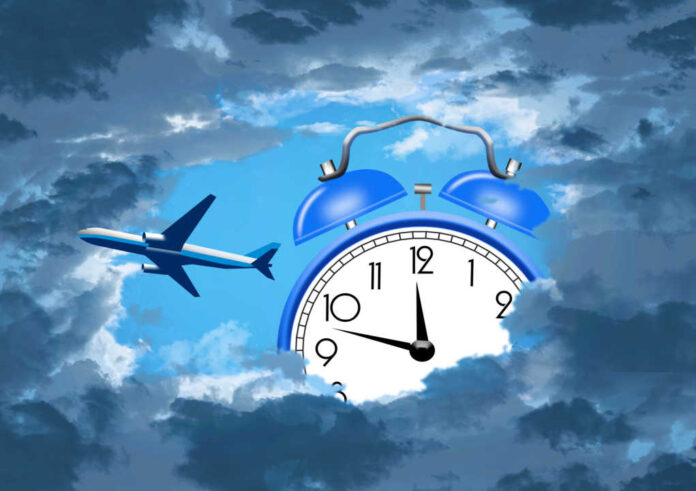
Jet lag is a condition that’s caused when you’re suddenly exposed to a different time zone, usually from a plane ride. It can take several days before your body and mind adjust to the new schedule and give you a chance to feel fully rested and energized again.
This is different than fatigue or sleep deprivation. Our bodies really do have an internal clock, called a circadian rhythm. When we travel, this 24-hour rhythm isn’t able to adapt as quickly as planes can fly us across time zones.
Sleeping On Time
If you can, try adjusting your sleep and eating times in the days leading up to departure. Depending on which direction you are traveling, this may mean staying up later at night or waking up earlier in the morning. Naps can help offset the exhaustion that comes with shifting your sleep schedule.
Light Exposure
Our circadian rhythms are influenced by the light/dark cycle around us. Your body won’t adjust to the new time zone unless your eyes are exposed to light and darkness at the appropriate times. When it’s daytime, go outside or make sure the window blinds are open so you can see the sunlight, even if you are tired. When it’s night, keep the lights off and avoid electronic screens, even if you are wide awake.
Exercise
Sitting around the hotel room or doing nothing all day might seem like a way to rest after your long journey, but it’s likely to make you feel sleepy at the wrong times. If you are trying to adjust your body clock, try to do things that will keep you active and help your mind stay awake. Get up and move around during the local daytime. Exercising will also help you fall asleep when you are supposed to.
Eating On Time
As you adjust to your new time zone – either before you leave or as soon as you get there – align your mealtimes with the local schedule. Eating when you are supposed to be sleeping will tell your circadian rhythm to stay awake. Eat nutritious foods that energize you instead of making you drowsy. Staying hydrated with plenty of water will help you stay awake and reduce the symptoms of jet lag.
Melatonin
Another option that appears to work is to take a melatonin supplement shortly before you are supposed to go to sleep. While stimulants and sleeping pills may reduce your quality of sleep, this over-the-counter supplement is safer and more effective. It’s not just the timing of sleep that matters, you also need to make sure that your sleep is high-quality, and melatonin may be a useful tool for that.
The Big Switch
It can take several days to adjust your circadian rhythm. You might not feel fully adjusted for the first day or two, but this is normal, and your body will work itself out if you provide it with the right conditions.






















